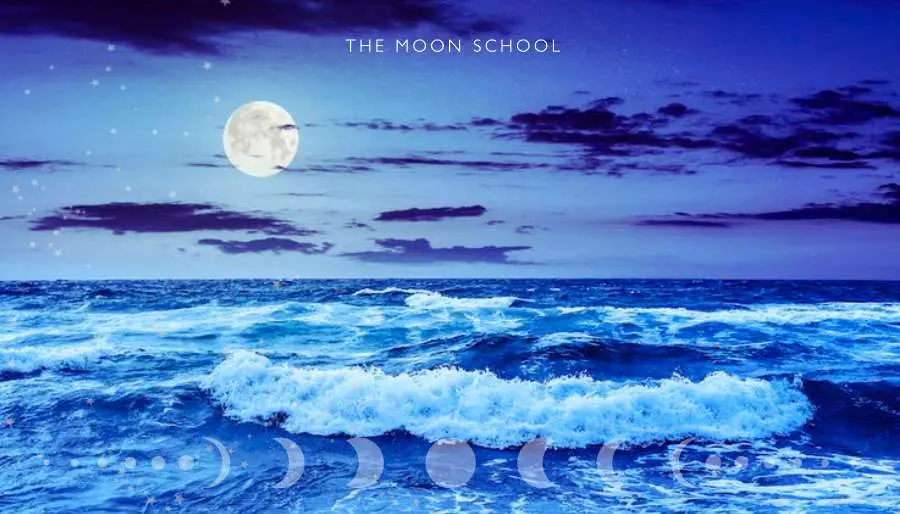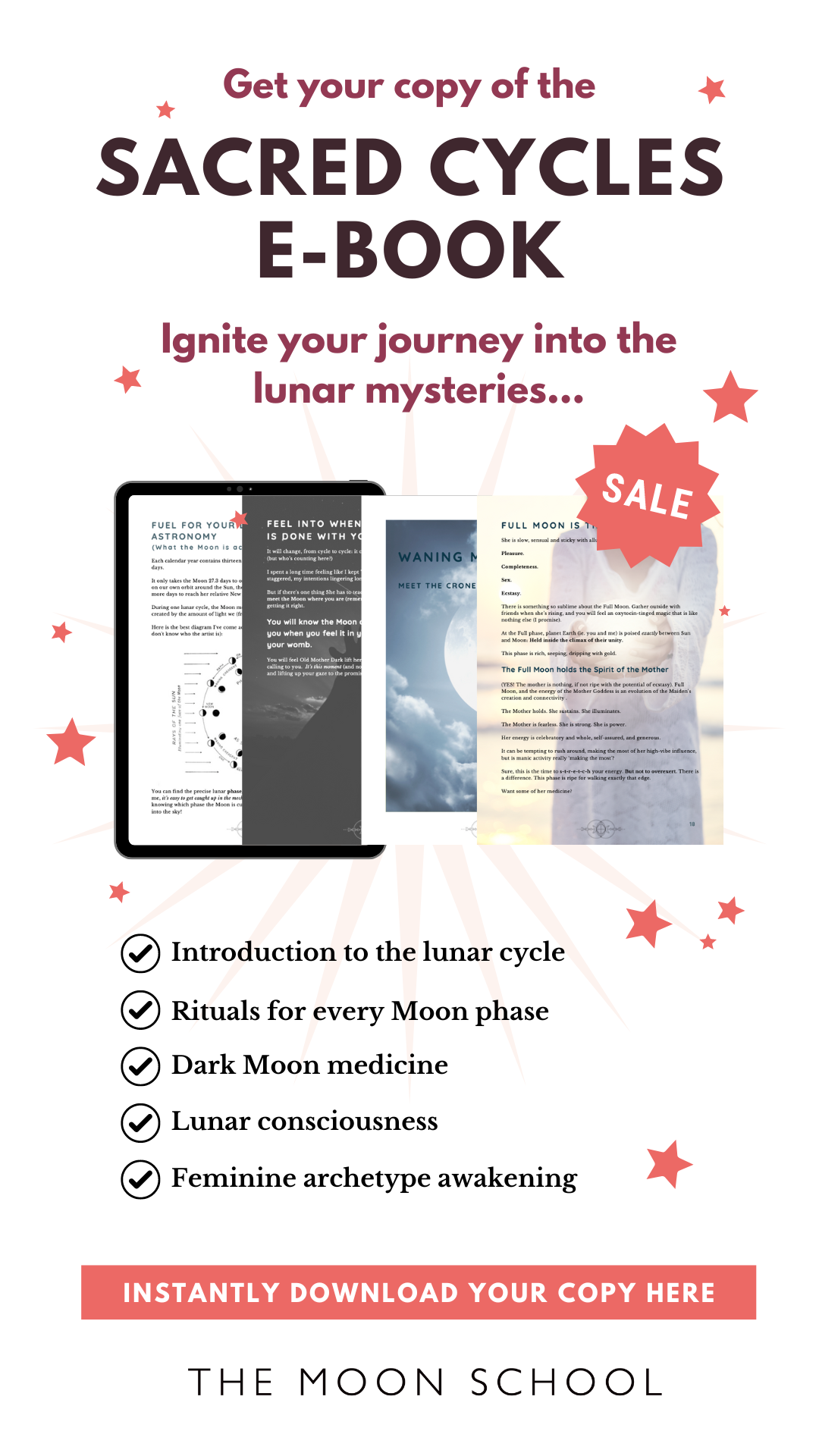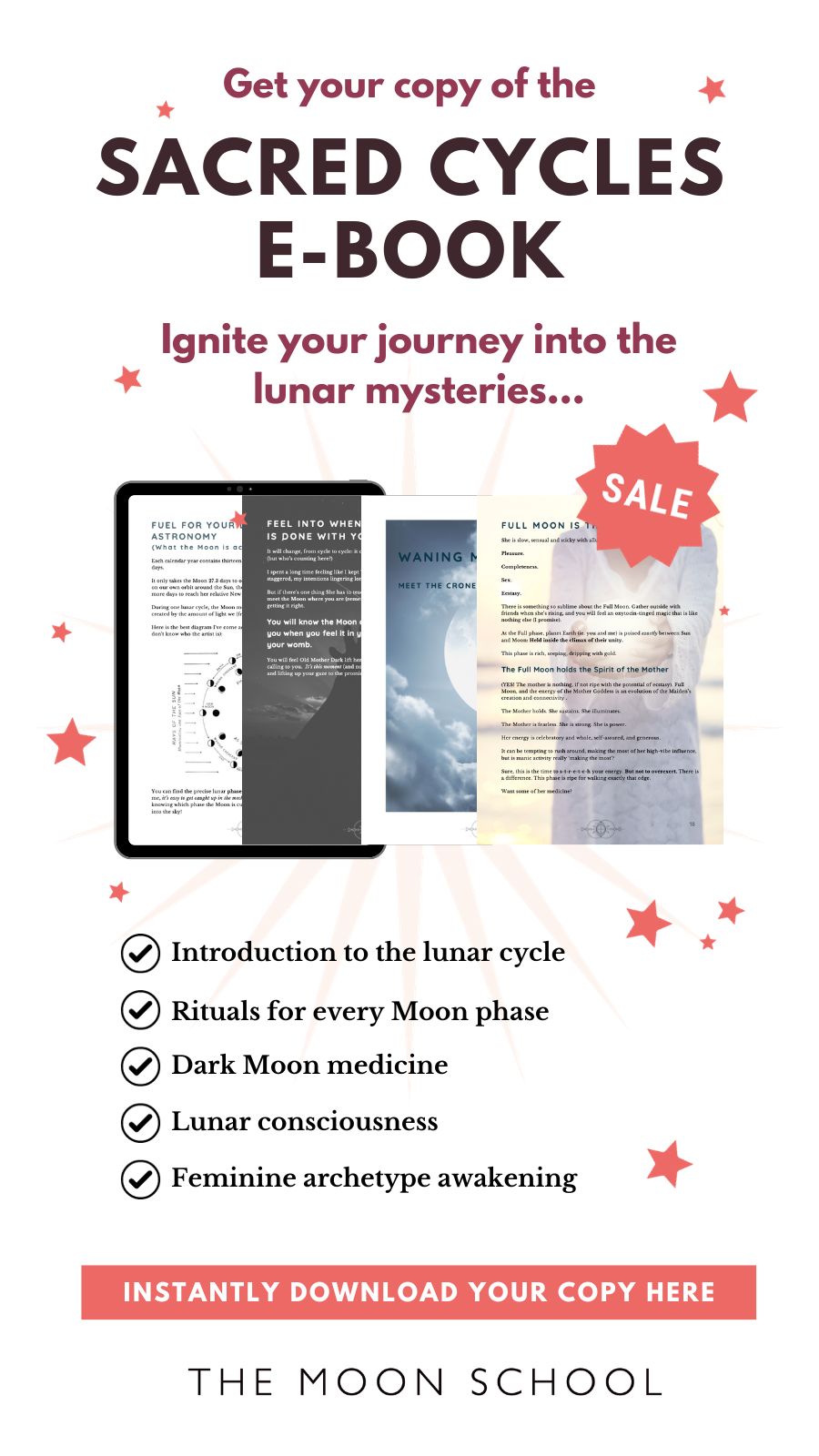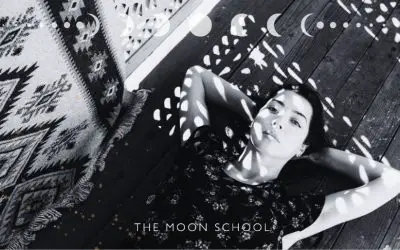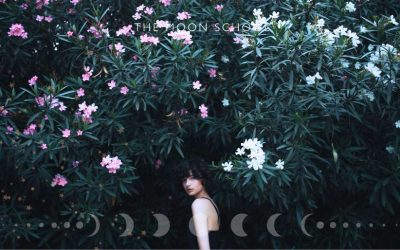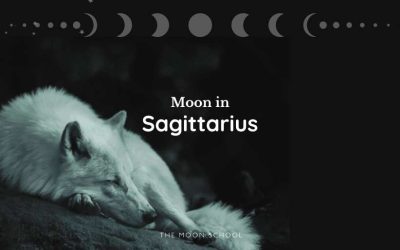As the start of the working week, (in our modern, capitalist societies) Monday is often dreaded by adults and schoolkids alike.
Isn’t it hard to rouse yourself from the pillowy warmth of a cosy bed?
Doesn’t the alarm feel SO much louder than on any other day?
Well, what if the Monday Blues weren’t just caused by the end of the weekend, but by something more cosmic, planetary, and lunar in nature…?
Monday is the Moon’s day
In astrology, Monday is ruled by the Moon, just as every other day of the week also has a planetary parton and ruler.
On these particular days, the ancients recognised activations, associations and connections between the earthly and the cosmic realms – subtleties we may not notice today, but to human walking these ways many thousands of years ago, it was, simple, how life worked.
The Moon is our closest celestial companion and governs our emotions, intuition, and more nurturing, motherly qualities.
As a symbol of home, the movements of the Moon relate to the domestic arts too. Cooking, cleaning, and tending to the needs of everyday life not as mundane duties, but sacred acts which held the very fabric of life together!
(This too can be hard to imagine, but the work of ‘women’ used to be the work of community, togetherness and magic).
la Luna is also a symbol of change – the Moon ebbs and flows, moving through many phases in one cycle. So this luminary guide represents beginnings and endings, and the creation and destruction that occurs in between.
Here’s how the Moon affects Mondays…
Lunar energy is:
- Ever-changing
- Cyclical
- Feminine (in all expressions)
- Flowing
- Mysterious
- Magical
- Intuitive
- Magnetic
- Comforting
- Rejuvenating
It’s a very incomplete list, these are exactly the kind of lunar qualities being infused into the first day of the week: Monday.
Pause, take yourself away from the relentless drive of the calendar and you’ll realise the natural frequency of Mondays resonates deeply with the ever-changing and cyclical nature of lunar energy. Just as the Moon moves from dark to light, Mondays are infused with this energy of rejuvenation… but it’s soft. It can’t be rushed.
La Luna’s cocooning, homespun essence infuses Mondays with a sense of nurturing and gentle domesticity. In the not-too-distant past, Monday was a day of laundry, baking and spring cleaning (and likely timed with the Moon in the signs too – air Moons for baking, water Moons for mopping floors, etc…)
There is devotion to this day, too. We’re being encouraged to flow with the natural rhythms of life, to meet the moment and tune into the tasks at hand.
Depending on whether the Moon is waxing or waning, Monday can be a day of creativity or dissolution – of building UP or breaking down. Intuition is needed, to tell the difference.
Like a magnetic force, the comforting presence of the Moon on Mondays draws us inward, encouraging self-reflection before we begin to navigate the week ahead with grace and resilience.
So regardless of what the Gregorian calendar, the rest of “normal” society, your boss and your kid’s school want you to feel about Monday… tune into the Moon, and she will be your guide.
Best things to do on Moon Day (Monday)
Even when you’re still having to operate within the system, there are many things you can do to bring more lunar energy into your Mondays. Spend 5 minutes in reflective journaling with your morning coffee, rejuvenate with a soothing ritual bath or plan a cozy evening at home with your favourite person.
The more you intentionally align your actions with the energy of the Moon on Monday, the easier it will be to loosen your grip on the parts of life that don’t align (and the faster they will release their grip on you!)
Here are some more lunar-inspired things to do on Mondays:
Make space for contemplation
Journal on your emotions
Resource yourself – what do you need more of to feel safe and secure?
Take a ritual bath
Prepare food for a few days ahead
Reach out to friends or family members for a real conversation
Do your divination practices
Draw up your astrology chart
Analyse your dreams
Declutter
Rearrange your furniture
Do home crafts (preserving, pickling, drying, etc)
Bake
Build an altar to honour your ancestors
Create a calming sanctuary at home and cocoon
Bleeding? Perform a menstrual ritual
Set intentions for the week ahead
Practice moon gazing
Start with a little thing.
Over time, by aligning with the energy of the Moon you’ll start to cultivate greater awareness of the subtle energies that weave their way through the week, and be able to honour your responses to them.
Does Monday refer to the Moon in other languages?
In English, the sound of the words gives the connection away (Monday + Moon-day). But the association appears in many other languages too:
English: Monday
Old English: Mōnandæg
German: Montag
Old High German: Mānetag
Swedish: Måndag
Norwegian: Måndag
Danish: Måndag
Icelandic: Mánudagur
French: Lundi
Spanish: Lunes
Catalan: Dilluns
Italian: lunedì
Japanese: 月曜日 (Getsuyōbi = day of the moon)
Thai: it’s วันจันทร์ (Wan Jan = the day of the Moon god)
What are the origins of Monday?
In many cultures, including ancient Greek and Roman civilizations, celestial bodies were associated with various gods and goddesses, and the Moon was often linked to a lunar deity.
In the case of Monday, its name can be traced back to the Old English word “Monandæg,” which means “Moon’s day.” This naming may have been influenced by the Norse and Germanic cultures, where the day was dedicated to the worship of the Moon goddess.
The Germanic goddess associated with the Moon was named “Máni” in Old Norse mythology, while the Romans had their equivalent lunar deity named “Luna. (explaining the French “Lundi” and Spanish “Lunes”.
Over time, as Christianity spread across Europe, pagan beliefs and traditions were gradually either wiped out or assimilated into Christian practices. But the association between Monday and the Moon persisted, and the day continued to be named after the Moon in many languages, including English.

